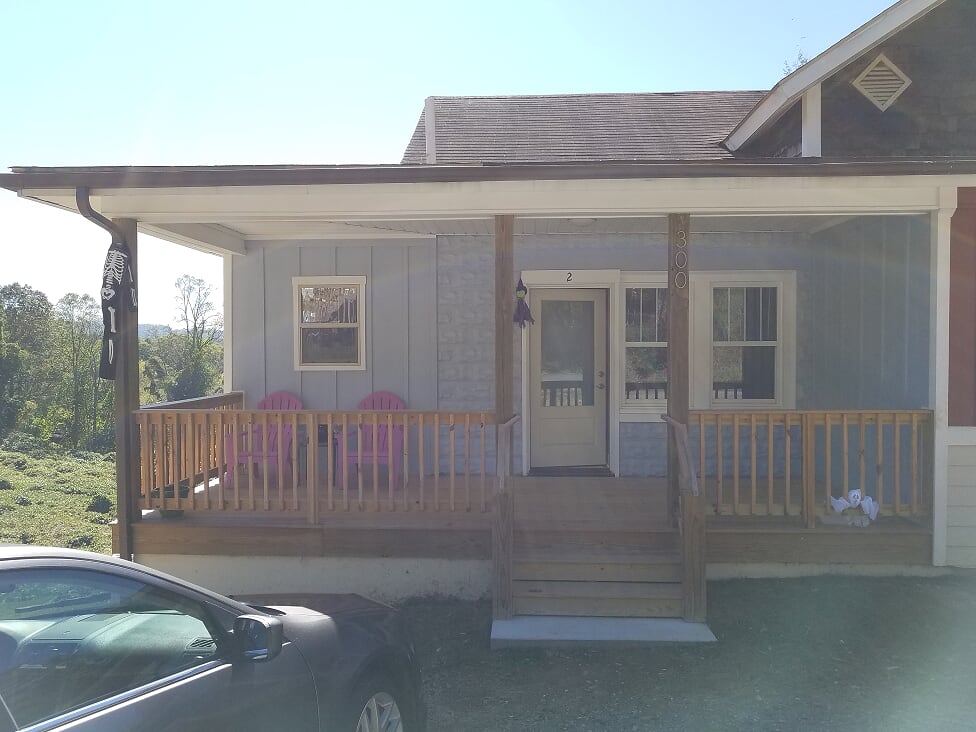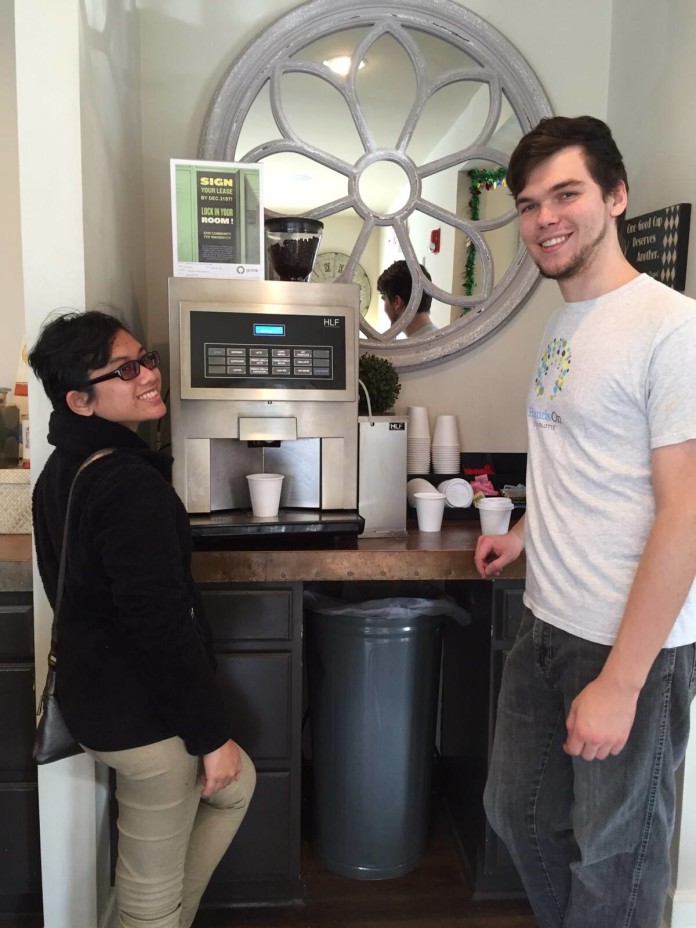When you become an international student in American colleges and universities, you have the choices of either staying in an on-campus dormitory or to stay in an off-campus accommodation. I have had the pleasure of living in both, therefore I would like to tell my story in hope that my experience would be useful to you should you ever find yourselves having to choose.

Living in an on-campus dormitory
When I attended Hiram College in Ohio during my first year of undergraduate studies back in 2013, I found it very easy to engage in a lot of on-campus events and, when I interacted with the same bunch of students every day, it was not hard to form camaraderie with those who shared the same living space I occupied. Miller Residence Hall, the name of my dormitory, was always full of laughter, warm smiles, and hugs as an energetic circle of nice teenagers assemble to celebrate their youthful freedom—this was a place where everyone genuinely cared about everyone else. For someone who was socially awkward, the dormitory was my safe haven.
I had two resident assistants or RAs, a guy who majored in Music Education and a girl who majored in Creative Writing. In American colleges, an RA is typically an older student, usually a senior or a fourth-year student, who mentor the younger students. Both of my RAs were very caring, friendly, and ready to lend a hand to anyone who needed their assistance.
My time spent in a dormitory had taught me how to be sociable while also learning to look after myself and others. This was best exemplified by the unwritten open-door policy: often, I would walk in on fellow students blaring music from the radio and I would get an offer to dance along, or I would catch them watching horror movies and it went without saying that I could sit with them on the couch. Because everything was meant to be enjoyed together, it felt wrong to be exclusive and discriminatory—we even had to patiently take turns when using the microwave in the kitchen, because there were thirty-seven of us and only one standard microwave. However, we were mature enough not to fight or monopolize it.
During the weekend, we would gather at the common lounge, which was a cool hangout space, and did teamwork activities—for example, there was one night when the RAs brought origami paper and asked us to pretend we were in kindergarten and were allowed to experiment with the origami. On another occasion, the RA distributed star-shaped blank cards on which we wrote the things that were the most meaningful to us—our family, our hopes and dreams, our faiths, and our personality traits—and proceeded to tear them apart to give us an idea of how depressing it could feel if we had nothing to comfort us in our darkest hours. It was a heavy topic for twenty-somethings, but it was a reminder that it was necessary to be supportive and understanding to individuals who might silently struggle.
We also planned and executed cheerful activities, such as an egg hunt during Easter, a costume contest, door decoration competition and trick-or-treat during Halloween, a homemade dinner during Thanksgiving, and gift wrapping for Secret Santa on the snowy weeks leading up to term break. We also loved to have bonfires where we roasted marshmallows and hot chocolate while swapping ghost stories and building blanket forts. All of those fun bonding times helped me to form long-lasting friendships!
Just like with anything else in life, however, there are of course disadvantages and advantages of living in an on-campus dormitory. For your reference, I have a compiled a list of what to expect when you decide to be a dormitory resident—there are some perks but there are some downsides too, so make your decision wisely and stay informed.
PROS
1) Better social life and sense of community/belonging
2) Proximity to academic, co-curricular, and professional development events
3) No need to worry about utility bills—the fees for the room and board already covers electricity, lights, air conditioner, Wi-Fi, and other infrastructure.
4) Can be a good way to learn how to appreciate diversity
5) Security and amenities is usually better on campus
6) Easier to find parking because you can obtain residential parking permit—a big plus for car owners
CONS
1) Could be distracting and privacy is not guaranteed
2) Meal plans might be mandatory—this can be both good and bad, depending on whether you like the foods in your campus’ dining hall. Personally, I did not eat a lot at the dining hall as I preferred to eat off-campus, so regretfully I did not spend as much of my meal ticket as I should before they expired, but if you go to your campus’ dining hall a lot then this obligatory purchase of meal plans should be put into serious consideration.
3) Might have to leave during summer breaks or some parts of the year when the dormitory building is shut down, such as for Christmas. This can be inconvenient if you have nowhere else to go.
4) Tiny space and it is rare to not be randomly assigned a roommate—might be a con if you prefer to have a room all to yourself.
5) There is a curfew hours and other rules, so you can’t always come and go as you please.
6) Laundry day struggle—some laundry rooms require you to use coins to use the washing machines and thus you have to always remember to spare some pennies. Some laundry rooms are located on the ground floor and it could be a hassle if, like me, you live on the third floor of the dormitory.
7) Communal bathroom—it might take a while to get used to sharing one bathroom if you usually have your own bathroom back home.
Living in off-campus apartments

For all the fun incentives mentioned above, living in a dormitory was not always rainbows and butterflies— when I was at Hiram College, I still got annoyed over trivial details. I disliked waiting in line for public bathroom as it made me feel I had no privacy, I hated having to go downstairs to the basement every time I needed to do wash my clothes, and I loathed the fact that dormitory can be very noisy except during exam or test sessions. My list of complaints was justified, but living in the dormitory was still worth the dollars because it showed me how to be empathetic, communicative, approachable, and ready to mingle—I never had to feel like a misfit and I knew I was among the lucky few who had a positive experience and was not forced to adapt to an unfavorable atmosphere. However, I was deprived of the prospect of becoming independent—that was why I opted to have a different living arrangement once I moved to University of North Carolina at Asheville my second year of undergraduate studies.

I quickly learned that if I wanted to survive in an apartment, I had to do regular grocery shopping and make sure the fridge was stocked, unlike at Hiram College where I lived a stone’s throw away from the dining hall. Well, buying eggs or milk and bread to try out new recipes were not difficult, the challenge was to clean up after making a meal or else my roommates would fume about dirty piles of plates on the sink that should have been put in the dishwasher. Aside from figuring out how to get food in the refrigerator and keep a tidy pantry, I also learned that there were rules for guests staying overnight—for example, the tenant hosting a guest should notify the landlord several days in advance. Additionally, that the guest is not supposed to stay longer than five consecutive nights or the host would have to pay a certain amount of fee. One time, when I had my mom coming over for a month and half, I was anxious about the protocol and procedures, so I tactfully negotiated with the property manager and my mom did not have to book a hotel room—but that was a fortunate instance.

the 2015 Thanksgiving Dinner hosted by the landlord of her apartment in Asheville, NC. Social events in an apartment is a pretty rare occasion, so any chance to mingle with other tenants are precious!
On top of frustrating daily errands, sometimes I feel lonely and isolated because, unlike in a dormitory, I had to make my own serious effort to go out and socialize if I want to be part of an association or organization. At first it was intimidating, but I realized that was what I needed in order to grow up and expand my network. I started to check out different interest groups, such as the Student Government Association and the Office of Multicultural Affairs. I also attended many career and job fairs, went to a couple of informational interviews, met some alumni who worked for Peace Corps, and had conversation with local Asheville citizens. Living in an off-apartment meant that I had to spread my wings and be more proactive in making new connections and attending networking events.
All things considered, I was grateful for my small apartment. Yes, it was a little overwhelming not having residential staff to guide me in doing household chores, but having independence was the first stage in being accountable for my own mistakes and to acquire a sense of pride for what I do right. I enjoyed having my own space in an off-campus apartment, but I also understand that apartment living might not be for everyone, especially if you are still adjusting to a new life as a college student. To help you decide what type of accommodation you should choose, below is a list of more pros and cons about living in an off-campus apartment.
PROS
1) A great way to learn how to be more independent/responsible and gain more maturity
2) More space and easier to find peace and quiet—especially great if you’re an introvert
3) Fewer restrictions – can have pets, no curfew, alcohol permitted if over 21 (also a con)
4) No need to move out between semesters
5) Might be cheaper depending on the rental market and how competitive the housing scene is—getting housing in high-density areas is different from getting one in cities with lower student populations.

CONS
1) Commuting to and from campus could be harder depending on transportation availability and whether or not you drive
2) More sense of isolation, less contact with peers and campus events and activities
3) No guarantee of availability or that you’ll be approved for a lease
4) Potentially poor amenities or less safe environment (alcohol, drugs, crime) that is not conducive to learning







